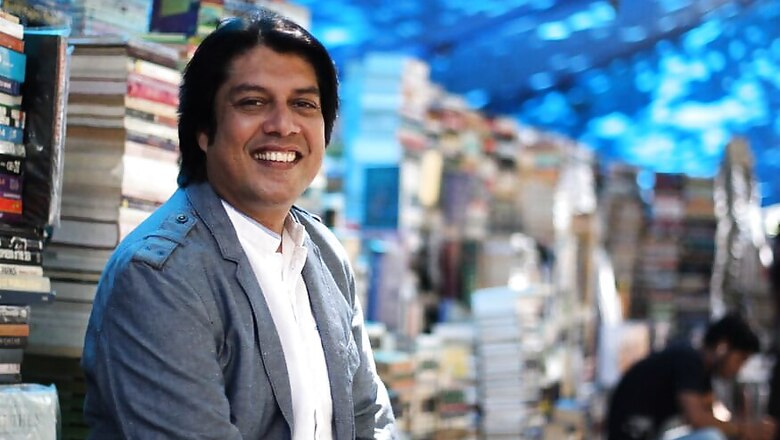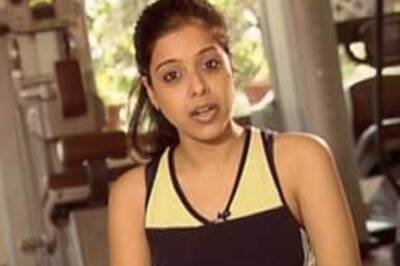
views
Piyush Jha is a modern-day storyteller. In a career spanning over two decades, he has experimented with various forms of storytelling--advertisements, films, books and OTT shows. Jha, as a filmmaker, has movies like Chalo America, King of Bollywood and Sikandar to his credit, and as an author, he has already published a long list of books which include the series Mumbaistan, Compass Box Killer, Anti-Social Network and the stand-alone novel Raakshas- The Serial Killer.
In a freewheeling chat, Jha talks about his penchant for spinning fiction from reality, writing a transgender character and his beloved city, Mumbai.
You have incorporated many current issues in your book, Girls of Mumbaistan, which not only makes it contemporary but also urgent. How do you decide which current issue/event to write about?
People often ask me, 'how do you do your research?' and I reply that 'I just read the newspapers'. Most of my writings and films are based on things I see around me or what I read about in the papers. I have discovered that stories form on their own. Sometimes, they knock at my consciousness and say, 'I need to be told' and I just sit and write them down. So, I just create a fiction based on reality.
In one of the novellas in Girls of Mumbaistan, the protagonist is a transgender police inspector and you have written the character with a lot of empathy and respect.
I have always wanted to write about the transgender community, especially the 'hijra' community, because I have grown up in Mumbai, and I have seen and interacted with members of this community since my childhood. Through my conversations with them, I have always tried to understand what their hopes and desire are. If given the right chance, what would they want to be? Of course, they don't want to live on the streets at the mercy of cisgender people. They want to be treated like human beings and thrive in the mainstream of life. So, while writing the character, I wanted to uphold those dreams and aspirations and portray the kind of biases they face.
Aren't you ever tempted to write non-fiction, especially when you are picking up so much from real-life events?
Well, the real world is there for everybody to see and experience anyway, right? Non-fiction is interesting from the point of view that it is a collation of facts, and it forms a point of reference. But, I tend to use reality as a springboard for my creative expression. Once I have the facts in place, I like to take a leap of imagination to spin my stories.
While filmmaking is collaborative, writing is often a very solitary process. Which process do you enjoy more?
As a filmmaker, I have only worked on my own scripts, so I've always built on my own thoughts and ideas. Filmmaking is tougher in that sense that you have about 100 or 150 people who have to buy into your vision and give their time and energy for a year or more to make a film that is beautiful and coherent. Of course, during this process, I sometimes benefit from others' suggestions and thoughts, and at other times, it is harder to manage opposing personalities and make them work together. It is a process which can be traumatic as well as enjoyable at different times and I have experienced both. Writing a novel, however, is a solitary process and in that process, it is just you with an empty screen, and your thoughts, and that can be equally traumatic sometimes. I would say that I enjoy both the processes.
Which medium do you like most to tell your stories?
A creative person, a storyteller, should just follow his imagination, rather than being tied down by a medium. Every story will find a home and find a form while some stories will find multiple forms. The medium is not the message. The story is the base.
I just want to be a storyteller because the story is the fount of it all. A story well told can travel to any medium. So, I do not worry if a story will be a screenplay or a film or OTT show or a book, I write the story and I write it in the best way possible for that story to be understood, enjoyed and experienced by another person.
For instance, three of my books are being made into a web series now. My third book will be the first season of a show called Virkar, based on a character written by me called Inspector Virkar. The first season will be called Virkar vs the anti-social network. My other two books -- Compass box Killer, and a short novella called Injectionwala from Mumbaistan will be made into the second and third seasons of the same show.
A lot of your writings feature Mumbai because you are from this city. But, do you ever find it limiting to write about a city like that which has been chronicled extensively in Indian literature? Is it hard to find something new to write about the city of dreams?
When I write about Mumbai in my books, I write the city as another character because to me this city is a living breathing entity. So, I infuse the character of this city, with all the traits of a human being. I want the readers to feel and experience Mumbai through my writings. Therefore, although Mumbai has been written about and picturised many times in films, I feel I have a take which is relevant and fresh.
Follow @News18Lifestyle for more

















Comments
0 comment